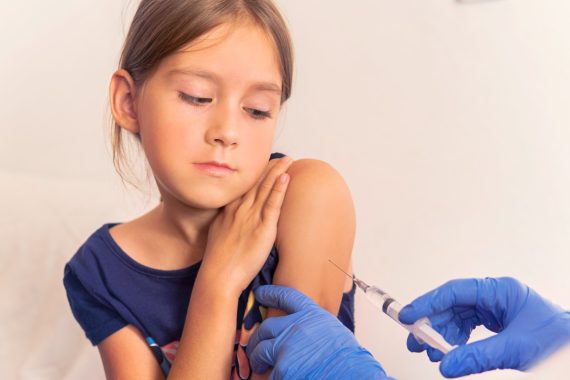The Government’s independent vaccines advisory body has recommended a move towards a one-dose schedule for HPV vaccination up to age 25.
Interim advice published in February had recommended a move to a single dose for children aged 9-14.
The final advice from the Joint Committee on Vaccination and Immunisation (JCVI) recommended:
- a one-dose schedule for the routine adolescent programme and MSM programme before the 25th birthday;
- a two-dose schedule from the age of 25 in the MSM programme; and
- a three-dose schedule for individuals who are immunosuppressed and those known to be HIV-positive.
The JCVI said the ‘switch to one dose can be advised now’ but ‘there should be sufficient lead-in time before this happens’.
‘If policy decision is in agreement with JCVI advice the earliest date indicated is the academic year 2023 to 2024,’ the committee said.
However, it stressed ‘the importance of catching those girls and boys who miss their dose once the move to one dose is implemented, by ensuring there are additional opportunities in school for vaccination’.
‘Some of the resources freed up due to the reduction in vaccination sessions should be re-directed to interventions that strengthen programme delivery, increase coverage rates and reduce inequalities.
‘This might best be undertaken by ensuring vaccination contracts included a requirement for extra mop-up visits to drive maximum opportunity for uptake,’ the JCVI said.
The JCVI’s decision comes despite stakeholder ‘concern’ that it ‘may be too early to make the decision to change to a one-dose schedule and it may be risky to do this, as the evidence is incomplete with no evidence on duration of protection beyond 12 years’.
But the JCVI argued that ‘the evidence is now very strong that one dose provides similar protection to that induced by two doses’ and it is unlikely that ‘the picture would change in the next few years’.
‘This is because there is already trial and non-trial evidence that initial vaccine efficacy from one dose is very high and likely comparable to that from two doses,’ it said.
‘In addition, the long duration of protection already seen is associated with a level of antibody that is steady and it is not biologically plausible that the antibody would suddenly fall in the next few years after being sustained for more than 10 years.
‘The one-dose antibody level is associated with high efficacy against persistent infection of HPV vaccine types.’
However the JCVI hedged that following the change, the programme must be monitored for ‘impact, coverage and inequalities’.
And there must be ‘a strong surveillance package to continue to monitor the incidence and prevalence of anogenital warts and high-risk HPV infections in the population’.
A study published last week said that giving an HPV vaccine around the same time as surgery for precancerous cervical lesions may reduce the risk of the lesions returning.
















